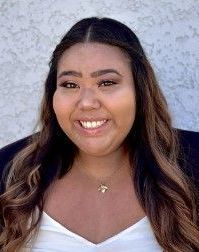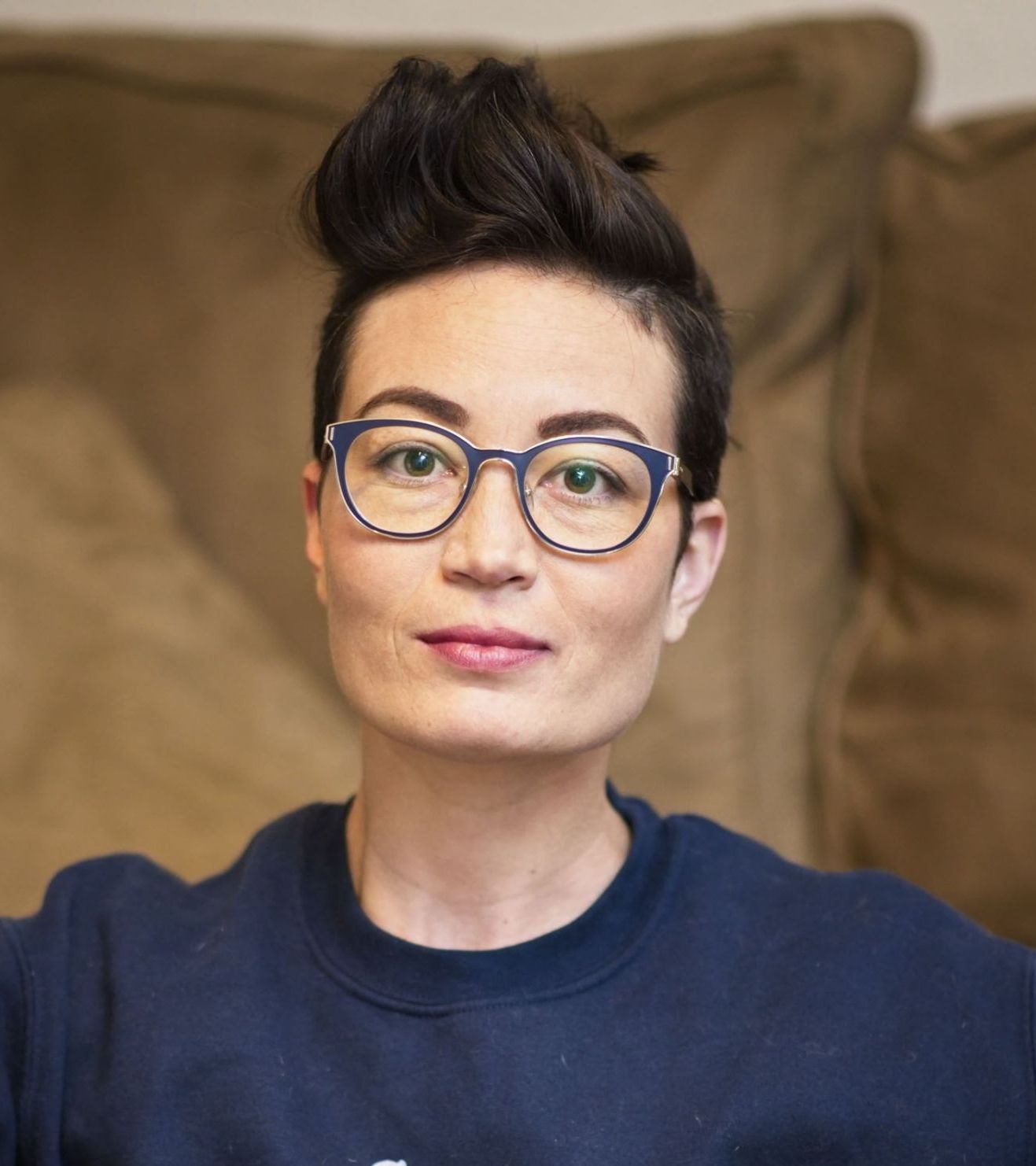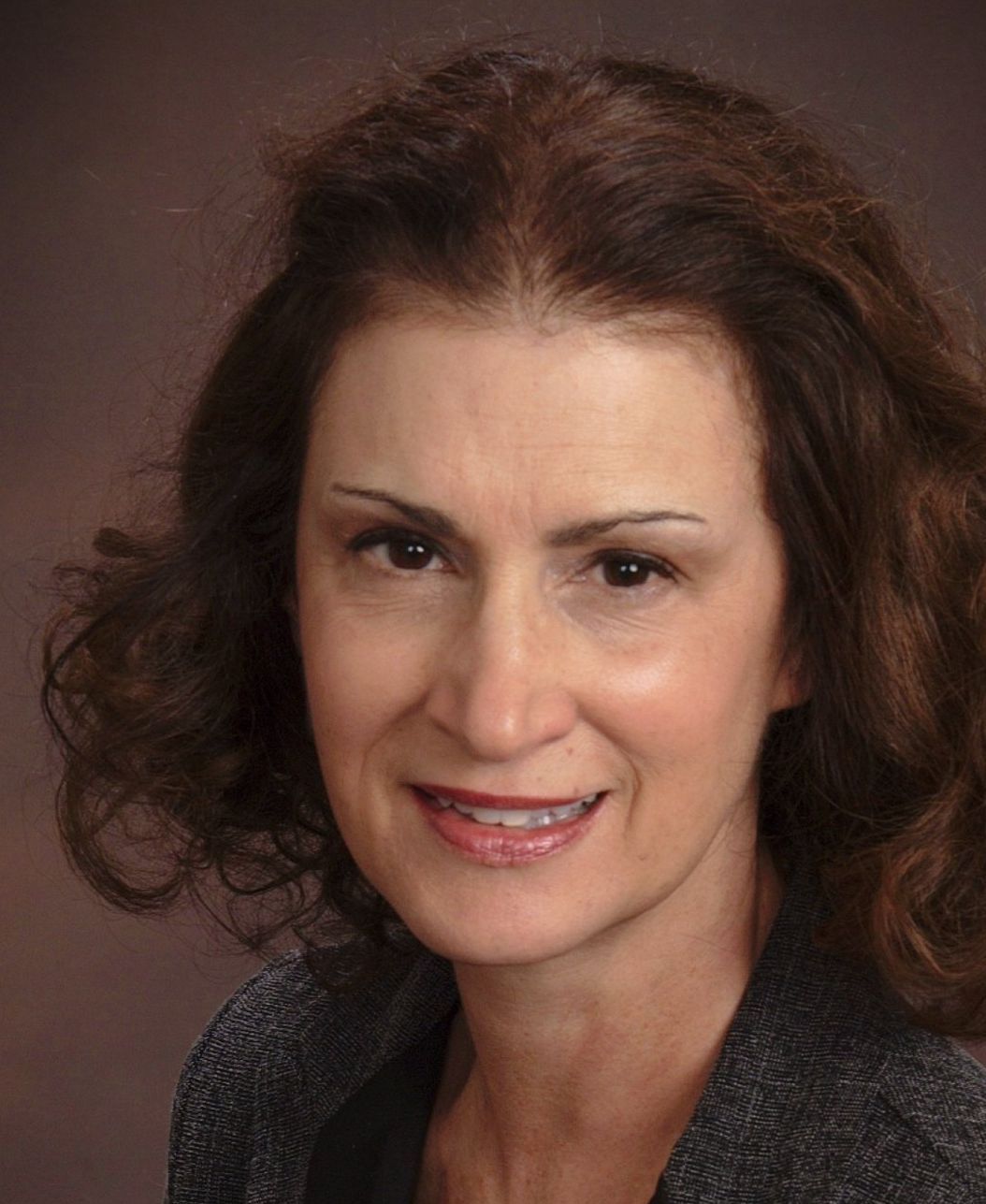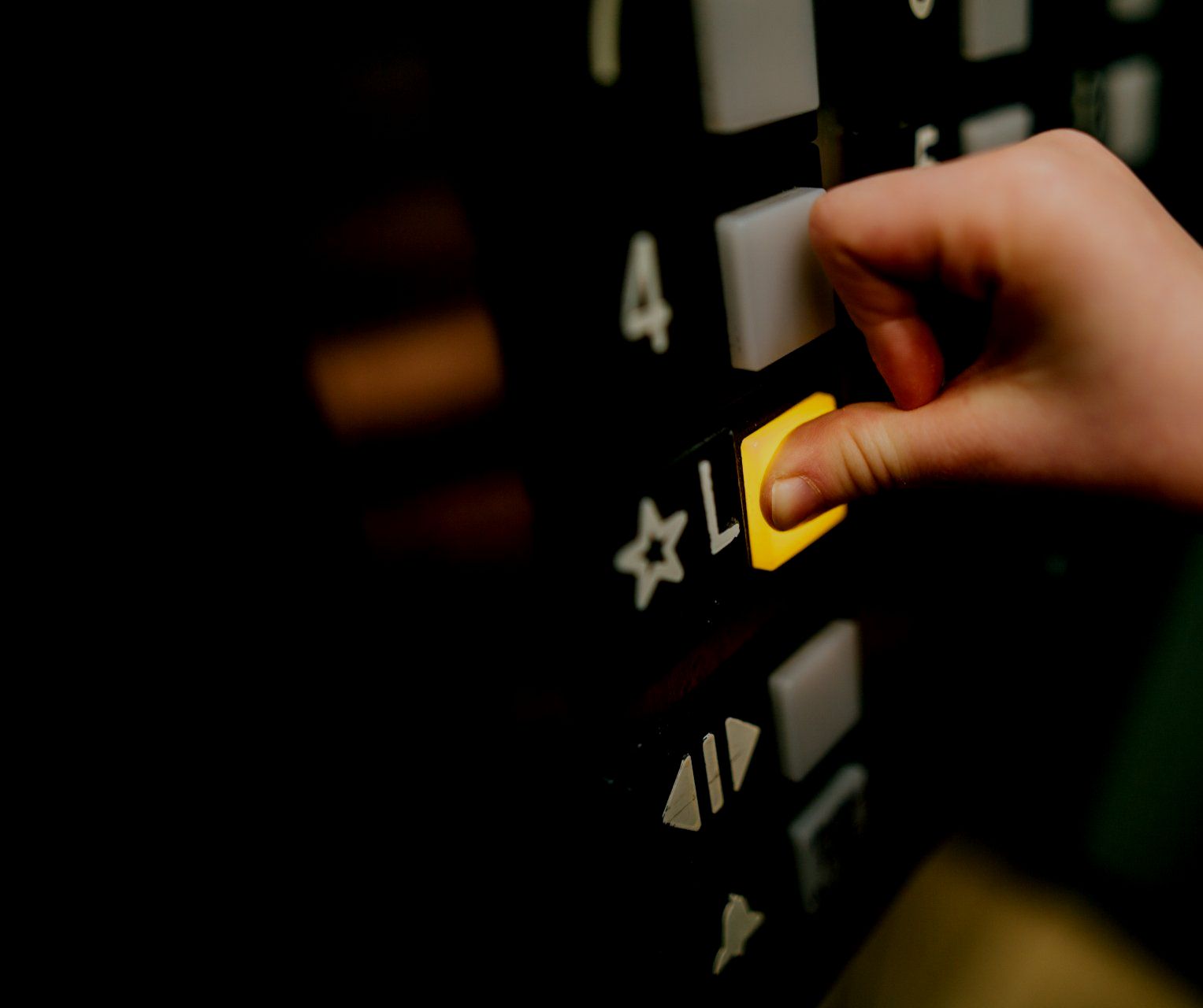- HOME
- ABOUT US
- WHAT IS AiARTHRITIS
- Diseases
- Rheumatoid Arthritis (RA)
- Psoriatic Arthritis (PsA)
- Systemic Lupus Erythematosus (SLE)
- Sjögren's Disease (SD)
- Axial Spondyloarthritis (AxSpA)
- Crohn's Disease
- Sarcoidosis
- Relapsing Polychondritis (RP)
- Systemic Sclerosis/Scleroderma (SSc)
- Behcet's Disease (BD)
- Palindromic Rheumatism (PR)
- VEXAS
- Antisynthetase Syndrome (ASS)
- Mixed Connective Tissue Disease
- JIA
- Familial Mediterranean Fever (FMF)
- HIDS (hyper-IgD syndrome, a mevalonate kinase deficiency)
- Cryopyrin-Associated Periodic Syndromes (CAPS) - Familial Cold Autoinflammatory Syndrome, Muckle-Wells Syndrome
- Schnitzler Syndrome
- Chronic Nonbacterial Osteomyelitis (CNO)/Chronic Recurrent Multifocal Osteomyelitis (CRMO)
- Still's Disease
- All Diseases
- Diseases
- OUR WORK
- RESOURCES & TOOLS
- GET INVOLVED
- CONTACT US
AiArthritis Rant Discussions - Inspired by "Am I the @$$hole?"
AiArthritis Voices 360 Main, Full Episode 87
Air Date: July 2, 2023
This episode is a Step 2, as outlined in our 6 Step Patient-Led Problem Solving Process.
Are you tired of feeling frustrated and unheard when it comes to your doctors, your disease, and all the challenges that come with it? Wish you had a platform to let it all out and find understanding?
Welcome to AiArthritis Rant Discussions - Inspired by Am I The @$$hole? Brace yourself for a new series that will give you a voice and an outlet to vent your frustrations. In this episode, our co-hosts Leila, Charis, and Patrice dive into the rants submitted by our AiArthritis community and they'll react, comment, and delve into topics that resonate with so many.
From stories of triumph over disease denial to the maddening experience of feeling invisible while in pain, this episode covers it all. Get ready to join us as our co-hosts fearlessly read aloud submissions from the AiArthritis community, sharing rants, vents, and personal stories. Together, they'll explore the burning question: Are you the @$$hole?
Want to Submit your own Rant?
If you would like to share your own rant with us for the next episode in this series, submit it here! www.AiArthritis.org/Rant
Episode Highlights:
- Co-hosts react to rant submissions from our AiArthritis community
- Overcoming disease denial
- How to handle being mistaken for looking “healthy”
- How to explain your pain and symptoms when you have “standard level” test results
- Dealing with adverse reactions to medication from your doctor
- Join our next series by submitting your own AiArthritis rant!
AiArthritis Voices 360 is produced by the International Foundation for Autoimmune and Autoinflammatory Arthritis. Visit us on the web at
www.aiarthritis.org/talkshow. Find us on Twitter, Instagram, TikTok, or Facebook (@IFAiArthritis) or email us (podcast@aiarthritis.org). Be sure to check out our top-rated show on
Feedspot!
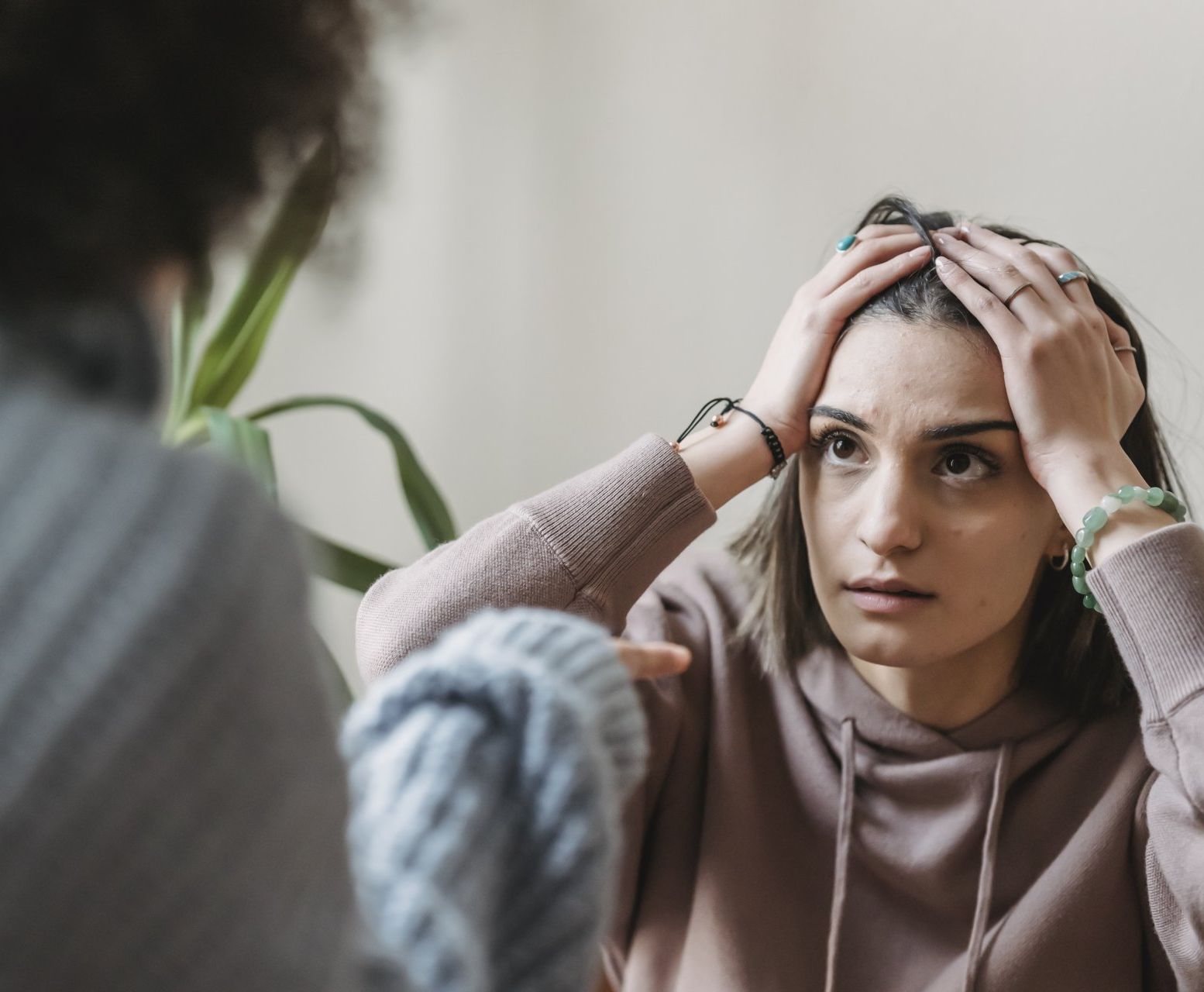
Who is at the table?
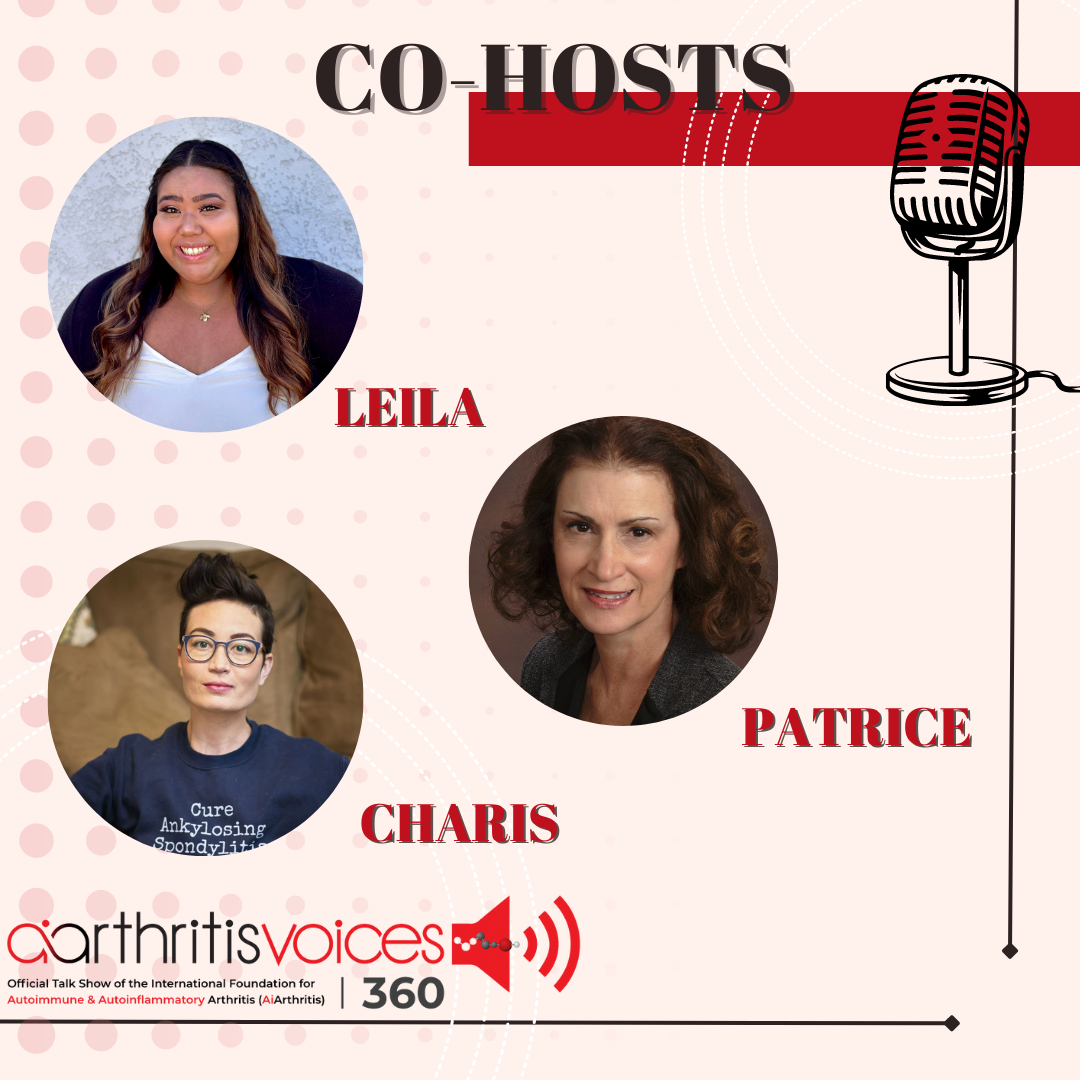
Leila Lagandaon,
Health Education & Engagement Manager and a person living with Lupus Nephritis & Sjögren’s Disease
Patrice Johnson, volunteer and person living with Rheumatoid Arthritis
Charis Hill, disability activist and person living with Axial Spondyloarthritis (axSpA) and EDS.
CLICK HERE TO JOIN THE CONVERSATION
-
Expand to View the Podcast Transcript
Introductions
[00:00:00] Leila: Welcome to AiArthritis Voices 360, the podcast solving today's most pressing issues in the AiArthritis community. We invite you all to the table where together we face the daily challenges of autoimmune and autoinflammatory arthritis. Join our fellow patient co hosts as they lead discussions in the patient community, as well as consult with stakeholders worldwide to solve the problems that matter most. Whether you are a loved one, a professional working in the field, or a person diagnosed with an AiArthritis disease, this podcast is for you. So pull up a chair and take a seat at the table.
Welcome to AiArthritis Voices 360. This is the official talk show for the International Foundation for Autoimmune and Autoinflammatory Arthritis or AiArthritis for short. My name is Leila and I am the health education and engagement manager here at the organization and a person living with SLE or lupus with nephritis and Sjogren's syndrome.
Today we have the tremendous trio here together again. I am joined by Charis and Patrice. We did episode 85, Elevator Pitches, together. And before I introduce them, I wanted to take the time to thank a few of you who have listen to our last episode that we did together and let me know that I didn't use the most inclusive language with the use of the word normal.
And I really wanted to apologize and let you all know that I will be more conscious of my word choice and work to shake the ableist language that I may have in my vocabulary. So I just wanted to let you all know that I will do my best to make sure that not only myself, but anybody else who is also on the podcast does the same.
So thank you again for calling me out. And with that being said, Patrice, why don't you introduce yourself?
[00:02:05] Patrice: Hello everybody, my name is Patrice Johnson. I have had RA for 12 years. I also have osteoarthritis, but AiArthritis does not cover that. And I am a volunteer in many roles. Glad to be here.
[00:02:22] Leila: All righty. Thank you so much. And Charis?
[00:02:24] Charis: Hey, I'm Charis. I use they, them pronouns and I have lived with axial
spondyloarthritis pretty much my whole life but I was diagnosed in my mid twenties and I volunteer with AiArthritis. I am on committees for several nonprofits, but I'm most active on Twitter and I'll share my handle with you later.
About this Episode's Theme
Charis: So I wanted to let you all know that this episode is going to be different than most of the ones we do here at AiArthritis. We were inspired by the trend of AITA, or Am I the Asshole, on YouTube and TikTok, where the podcast hosts read Reddit stories and the guests react, you know, without having heard the stories before. And they give their honest opinions on whether or not the poster is indeed a bleephole. We are going to do our own AiArthritis version where we take rants from our rant program and react and comment.
[00:03:22] Leila: And we also wanted to share a note that this episode is unscripted. Like Charis said, we will be just reacting on the fly to what the rants have to say. And so each individual response is our own opinion and doesn't reflect the views of AiArthritis as an organization as a whole. And all the information provided in this podcast is for entertainment and awareness purposes only. We are not here to provide medical, legal, or professional advice. So if you do have any concerns, please contact the right professional, your doctor, anybody else who may be able to help you. We are giving our own personal experiences and should not be taken as medical or legal advice. And so, with all that being said, we are going to go ahead and jump in to our first rant. And all of these people have let us use their first name, so I will make sure to do so.
Rant #1: People Underestimate Autoimmune Diseases
Leila: We have our first rant from Nadal. And they say:
"After a year of denial of my autoimmune disease, I finally had the heart to reach out to a rheumatologist two years ago, and I was diagnosed with not one, but three autoimmune disorders that overlap. Being in the healthcare community, I expected people who were working with me to understand my symptoms and the fact that this is a disability and not something I am overthinking or I can ignore the symptoms away.
Even as a doctor myself, it was tough for me to make people understand how the disease affected me over the years and how it still is a new day for me every day. People are very uneducated in the rheumatology field and it's heartbreaking that my own colleagues, who are themselves doctors, don't support me or understand me and my disease."
Wow.
[00:05:21] Charis: Wow. Indeed. That's what I was thinking the whole time. Wow.
[00:05:26] Leila: Wow.
[00:05:27] Leila: That's a really powerful one to start off with because that just shows, wow, that just shows how, like how much of a gap there is of our diseases and people understanding them that doctors themselves don't even know what what's going on.
[00:05:42] Charis: Yeah, I think that's it in a nutshell. I think we can end the episode now. That's it. That summarized literally everything.
[00:05:52] Patrice: Well, the person who wrote that is spot on. I don't have anything to add to Nadal's post I think it just speaks for itself.
[00:06:02] Charis: Absolutely. Yeah. And Nadal, I'm sorry if we're mispronouncing your name, hopefully we got it right. I, I think this speaks to a lot of stories I've heard from people who are rheumatology professionals who have such limited knowledge of the diseases they treat because a lot of them don't live with them. But also, I want to point out that rheumatologists treat, what is it, like over 200 conditions. And it's, you know, impossible for them to know the ins and outs of like every single one. But at the same time, if a rheumatologist, or did Nadal say?
[00:06:46] Leila: No, Nadal is, is just a doctor in general. Didn't say that they are in any specific field. So, okay.
[00:06:54] Charis: Like even if another medical doctor or other HCP, whether it's a nurse practitioner, you know, PA or nurse, even if their colleagues cannot engage with them, like that is how bad it is for people who are not healthcare providers. And I think it also speaks to, if we expand it even more, to stories I've heard from Black women MDs who have had really bad experiences like going to hospitals where they have to divulge, I am a doctor, before they are taken seriously.
Or maybe sometimes they aren't. Anyway, that was just a tangent, but yeah,
[00:07:39] Leila: Absolutely. And I think that Nadal also speaks about the denial of, of having an autoimmune disease and not being diagnosed with one, but three all at the same time. And that's kind of the part that I want to highlight is the denial too.
It's I'm a doctor. I know exactly what's going on and I, yeah, it's not that big of a deal, you know, it's, it's the downplaying of, of the symptoms because a lot of people can mistake our diseases for anything else that might be happening in their life. They might've run too hard, so that's why they're having joint pain or they work too hard at work, so that's why they're having fatigue.
It's really easy to try to convince yourself that you don't have one of our diseases.
[00:08:28] Charis: Yeah, that, that ties directly into ableism too, and, and there's so much ableism in medicine where doctors are put through these rigorous training programs where there's bullying, I know, and they're working like what 12 hour shifts and it's exhausting.
And if you can't keep up, then you can't be a doctor is sort of like, it's, there's a lot of gaslighting and I'm not speaking from experience, obviously, but these are stories I read all the time from people who either dropped out of med school and identify as disabled, you know, and for Nadal to use the word disability is really, I'm really glad that happened because a lot of doctors don't like using that terminology because it signifies like this person can't be fixed, like, where it's, it's a very medicalized version of, of disability rather than a model of disability where if you have the right supports in place, your life is more functional and you can, you know, exist without a lot of the barriers that doctors even sometimes impose on people for denying mobility aids and assistive devices and whatnot, because you should just push through this.
[00:09:47] Patrice: A few years ago, I was diagnosed with severe hearing loss. When I noticed that my hearing was not what it was, I contacted my primary. They said to me, "Oh, it's just, you might have clogged ears, or maybe it's a recurring ear infection. You don't need to be seen by an ENT." Well that went back and forth for about two years.
And I finally told this doctor, I said, "I'm done with you." That's it. Whatever. So I actually contacted all the ENTs that were in my area where I was living at the time. And all of them said, "I need a referral, I need a referral, I need a referral." Until the very last one I came to, talked to their staff on the phone, and they said, you can come in here.
I said, "I'm willing to pay out of pocket." I said, "I just want a hearing test. I just want a confirmation that I have hearing loss. " And of course, yes, I went in and I have severe hearing loss. But for a physician to deny a patient a request to see a specific doctor or a specialist is just, that's, I, I don't, well, I have a lot of words for that, but we'll just leave it at that.
[00:11:04] Charis: This is the rant episode, so.
[00:11:07] Patrice: Okay, it's unacceptable. You take an oath to help people and you deny me that I know that I have hearing loss? I can't hear anything on the TV. I, I can't hear anybody on the phone. I mean. Come on!
[00:11:21] Charis: There you go Patrice, let it out.
[00:11:25] Patrice: I could spend a whole hour on that but yeah.
[00:11:28] Leila: Absolutely. I'm gonna go ahead and move on to the next one if that's okay with both of you. If there's anything else that you wanted to say about the previous one.
[00:11:35] Charis: Next!
Rant #2: I'm Not Fat and Lazy
[00:11:36] Leila: Alrighty. Next up, so we have Lindy, and Lindy says:
"How can I possibly feel so awful and pain almost everywhere, yet most test results are within normal range? Then they say, 'I just need to be more active.' What do they think? I sit around in the house all day, do more exercise, and then in a week, I'll recover or not because I might have a flare up from pushing myself too much. 'Oh, and have you tried losing weight? If you lost 15 kilograms you would feel like a new woman.'
Duh. As if I haven't been trying to lose weight. Don't they listen to me? Things change in my body, even my metabolism, and almost nothing resembles the person I was before getting sick. They see the results of an underlying issue, but not trying to find out the causes. I have Sjogren's and arthritis and fibromyalgia, but even with those diagnoses, they always manage to make me feel like it's all in my head, like it's not a big deal, and I mustn't cope well with pain.
For once, I would like to have my feelings validated, and not each appointment feeling worse than ever."
Man, that is very, very, very, very relatable. So relatable.
[00:12:54] Patrice: I think all of us have heard that at one time or another in our journeys with our diseases. I have, and that's a story for another time, but, yeah, I could, because my blood work is for the most part has been on an even keel the last couple of years with the exception of my ANA screening, and that is always off the charts. But I had a physician a couple of years ago who told me that I don't have arthritis. I since have a new rheumatologist and they have told me, yes, you do indeed have RA.
[00:13:32] Charis: Yeah, I love when gaslighting is just like every person who has been diagnosed with a chronic disease knows what gaslighting feels like, even if they don't have the term for it. I, so I have a friend who I was texting with today, who's getting a colonoscopy soon, and she's talking about like, well, you know, I'd rather have them do this while they're in there, if they see evidence or whatever. And, and I responded something like, well, whatever happens, I hope they actually find answers rather than say, congratulations, everything's fine.
Like, we dread that in this community where, like, we obviously have symptoms of something, even if our blood work comes back normal or our imaging comes back normal. I'm saying that in quotations. Within normal ranges is, is better terminology. We still need answers, even if it's just validation from that doctor.
And if we were asking during this episode and answering the question, the, am I the bleep hole, which I actually was joking about while we were talking about this episode, that it should be, am I the expert? And it's like, Yes, if you are experiencing something and your doctor is saying, congratulations, you're fine. You are definitely the expert because it's your own body. You're feeling something, you know, Lindy. You are the expert.
[00:15:03] Leila: Absolutely. And I just wanted to talk a little bit more about the, the whole, you know, exercise is supposed to help you with your disease activity kind of conundrum, because that's been, it really has been a conundrum for me.
I grew up as a dancer doing every type of dance that you could think of ballet, tap, hip hop, jazz, Tahitian, all of the different types of dances. I played volleyball up until my junior year of of high school and I was diagnosed with my lupus at 12. And even with all the physical activity and trying to eat right and being, you know, I was given the dietician when I was 12 years old because I was morbidly obese.
It's very disheartening to feel like, okay, people are telling you you need to exercise, and I try to exercise, but then I tweak my Achilles heel, or I'm so exhausted after that, that I can't even do my homework or go to work. And it's like, what do you do? Do you stay in bed? And even though, you know, you think that you're resting, but you also kind of are fighting with yourself, that you should probably go and work out because that also is good for you.
It's like, how do you know what is best for you at that time? And I always end up, if I'm going too hard with working out, I, I do, and I end up getting injured. And it's, it's such a hard thing to balance and to, to know how much is, is too much and how much isn't enough when it comes to your own body and exercise expectations and things like that. It's, it's, it's just really hard to know.
The Hidden Struggles of Disability
[00:16:40] Charis: Yeah. And thank you for saying that Leila. I think it, it also like we're getting in the territory with what you just shared and what was what Lindy shared that there's this really harmful trope in the medical world where, and this is part of ableism too, where obviously if you are not improving and you are still symptomatic, it means that you are not doing enough.
And it's this whole idea that like, Disabled people just aren't trying hard enough to feel better. And that goes beyond medicine into, you know, psychosocial cultural life where strangers on the street will be like, why are you using a wheelchair if you can walk? Or if you just walked, you wouldn't need a wheelchair or, or if you park in an accessible spot and you're, you look fine in quotations, it's, it's just the such really damaging trope that leads to people having internalized ableism and shaming themselves for, you know, not improving, not getting better, not trying hard enough. And it's just so frustrating. I'm so glad this is the rant episode because that is what we are doing.
[00:17:56] Patrice: Yeah, I was recently traveling by air and my first flight was late taking off and when I landed I had to go to another flight in another terminal and in that terminal I had to re-go through security and I could, my phone is beeping at me, "we're boarding, we're boarding" and so when the security guy was told when I was, you know, going through the thingy with the body scan and all that kind of stuff.
And I said, "am I going to make my next flight?" And the security guy looked at me and he says, "only if you run." And I said, "I can't run." I said, "I have a knee that's had two operations. I physically can't run due to an autoimmune condition." And he just looked at me with a blank stare. And I felt like telling him, "well, do you have any options for me?"
But, you know, then I have to look at the fact, well, he's just dealing in one thing. And that's making sure that that person, that suitcase, that coat doesn't have anything on, that's going on to a flight. And, so I kind of have to look at it that way. But I almost screamed at him like, "well, what do you expect me to do if I can't run?"
[00:19:06] Charis: Yeah, I'm surprised he didn't say something like, "well, get a wheelchair assist then." And I'm sure that people will probably comment on this episode, "Patrice, you should use the wheelchair assist."
[00:19:17] Patrice: Well, I was in a, I was in a foreign country and in a foreign airport. ADA rules don't apply over there.
[00:19:24] Charis: Yeah. And maybe we should do a whole episode on airports and, and flights because ADA doesn't apply to a lot of like it might apply to a local airport, but like the TSA is not.
Yeah. Anyway, big segue, we don't need to discuss that, but ...
[00:19:44] Patrice: We'll touch base.
[00:19:46] Charis: Yeah. Yeah. To be, to be followed up with. Yeah.
[00:19:52] Leila: I just do have a lot to say about this one. So I'm going to mention one more point before we move on. Lindy also mentions changes in her body and her metabolism and talking about how almost nothing resembles the person that she was before she got sick. That's something that I really need people to understand is that the medicines that we take, they take a toll on our body. Not only are they helping us, but they are also harming us almost just as much sometimes.
And that's one of the biggest things is about my weight and how I ended up becoming this big is that when I was eight years old, I had immunotherapy cytopenia, which is very low platelet count, which is also has to do with autoimmune and all of these different things. And I was on 40 milligrams up to even 100 milligrams of prednisone as an 8 year old.
I gained 50 pounds when I was in 4th grade and got bullied out of my school and had to transfer schools because it was so hard to deal with. And so when people come up to me and say, You know, how did you, how did you get so big or, or, or, you know, like, haven't you tried to lose weight? Don't you think that you should do this and you should do that?
I've been on that much prednisone at least three or four times in my life where I've gained 50 or more pounds and I've never been able to take it off. And again, it has to do with the metabolism It has to do with the medicine that you're on and it not be your hormones not being balanced enough to be able to help you lose that weight and I now am as you know as a full grown adult, I understand what happened back then, and I do know that there's things that I can do to, to help with my metabolism and help with my weight now.
I actually am having, uh, gastric sleeve surgery at the end of this month. And so that is what I've been needing to do to help boost my metabolism, to be able to help with my weight and to therefore help, hopefully, with my joint pain symptoms and, and helping to decrease that, but that doesn't necessarily mean that that's going to happen.
There's lots of people that are skinny that have just the same amount of pain. It is more just overall for my overall health, but, you know, it's not, it's not something that I chose to happen. It's not something that could have been prevented. I, I needed to be on that prednisone to survive and to live.
And the side effects were me gaining weight. And so my biggest thing is when you see someone walking down the street and they look morbidly obese and you have, you're wondering, oh, how could they do that to themselves? How could they let themselves get, get that big? You just never know the full story. And I, I really, I really need people to understand that.
[00:22:41] Patrice: I think our, our society too is, you, you're an individual, Leila. You have, your body reacts to different things than from me and from Charis. And so, why are some people thinner? Why are some people heavier? And I think another thing too is, the medical community, I don't care what kind of disease you have, and I know I'm probably going to get reamed for this, as a female, you have the female hormones.
And you have all the things that go on month to month. I'm post menopausal, so I don't have to deal with that anymore. But I think that also is a big factor in those of us who are of female, she, her, you know, that's what you were born with, and, and I think that is a big factor as well.
[00:23:34] Leila: And even with my lupus, I had to be on birth control because the risk of getting pregnant can also really, really affect your disease. And so that is another layer of the weight and the hormones and all of those things.
[00:23:47] Patrice: Yeah, the birth control pills will make you gain weight, at least when I was on them. Maybe not a lot, but yeah, you do notice it. And retaining water, I don't know if that's anybody else's problem, but it is for me,
[00:24:01] Charis: Leila, I just wanted to thank you for being open and vocal and sharing that very traumatic story, you know, from a young childhood of being bullied out of your school.
I mean, I don't think people realize the, the trauma that goes along with things that happen to our bodies because of the medications we take to function. And I, I'm glad that you speak to the impact of, you know, fat phobia and, and also the individual choice to either own that being a fat person and identifying as a fat person proudly and working on being healthy, like being fat does not mean you aren't healthy or functioning or exercising or whatever. And you can also choose to lose the weight if that's going to help. And if you want to, and I think, you know, that's something we could also maybe discuss in a future episode, because I think a lot of our listeners would really relate to that.
Because a lot of us are on prednisone, a lot of us are on medications that either cause weight loss or weight gain or change our bodies in other ways. So I, I think, you know, talking about dysphoria might be, you know, a really good topic. So thank you, Leila.
[00:25:22] Leila: Yes. When I saw the title, so also these people, self titled their rants. I'm going to continue on with reading them, but Nadal's self title was People Underestimate Autoimmune Diseases. And Lindy's was I'm Not Fat and Lazy. And I, that, that just really spoke to me. And yeah, I'm gonna, I'm gonna leave it at that. I said my piece. So we're gonna move on, but, thank you, Lindy, for that one it, that one really spoke to me in, in my heart and my experience, so I really appreciate this rant.
Rant #3: The Ghosts of Rheumatology Past
Leila: On to the next. So we have Joel, and Joel says, "I've not seen my rheumatologist in over five years, but recently I went to a medical conference in a foreign country and saw him on day one. Unbelievable."
[00:26:13] Charis: Is that it?
[00:26:15] Leila: Yeah, that's it.
[00:26:15] Charis: That's hilarious.
[00:26:16] Leila: And the title is The Irony.
[00:26:20] Charis: I, okay. I have a story about this. So, what did you say the name is?
[00:26:25] Leila: Joel.
[00:26:25] Charis: Joel. So Joel, if you are listening, I once fired a rheumatologist and then I saw her at the medical conference I went to that fall and we had a conversation and it was so awkward. So I can relate.
[00:26:42] Leila: I'm also thinking, I'm like, I hope there was telemedicine involved or something like that in the past five years. Cause how is that possible? I see my rheumatologist every, every three months. So I'm like, I hope you mean in person, like that's the only, like the last time you saw them in person.
I do hear a lot of stories from people who just stopped going because either they're not getting the help they need or they're stable and they don't think they need it or something happens with insurance or, you know, financial stuff.
[00:27:14] Patrice: Or they live 500 miles to the closest rheumatologist. I mean, that's a, that's a two day event.
[00:27:20] Charis: Yeah, but if you go to a foreign country and see your rheumatologist, it doesn't follow under fall under U. S. medical rules, so maybe you can get treated.
[00:27:29] Leila: Seriously. But I, I think this is, this was from you, Lars. So this was literally just like last week. So I think this is hilarious. Joel's not going to mind me saying this, but Joel is actually a host of our race a thon for World AiArthritis Day.
He's from the UK and he is a really amazing psoriatic arthritis advocate. His, his handle is JoelvsArthritis. So if you all want to go ahead and show Joel some love, go ahead.
And, Joel, I love the, the rant. I love the story and it's hilarious. I think that you, you chose like very cute, sweet, succinct rant, but it's also like, What the heck? What do you mean? Okay, that was a good middle one that we were like, you know, it's just kind of cute and funny. And it's just, it's just, just funny things happen. Coincidences happen like that, where you're just like, Universe, are you just making fun of us? Or what's happening right now?
[00:28:31] Charis: Yeah, I think it also speaks to how small the rheumatology community is, even though like there are trillions, I don't know, millions, billions of us with rheumatic conditions. But like, there really aren't that many rheumatology professionals. If you think about it, like there's a shortage, so
Rant #4: It Just Happens
[00:28:48] Leila: Absolutely. Okay. Let's move on to the next one. This is from Dailene and the title is Sometimes It Just Happens:
"Growing up, I've been active and passionate about nutrient dense foods. I thought I was protected, then in May 2023, I had a trip to the ER, slowly dying with a new diagnosis of Still's disease, as it had inflamed my heart and liver. I was baffled. Sometimes you can do everything right and still get an AiArthritis disease.
But that only encourages me to ask new questions, as it wasn't the healthy habits that contributed to the disease. Sometimes it just happens. And answers are a mystery. Ride the wave, I tell myself. Everything will be okay."
[00:29:37] Charis: Wow. For a newly diagnosed person, like, to have that perspective so early is just, I applaud you. That's, I was definitely not near that way of responding when I was diagnosed. Yeah. I don't know if that's a rant though. Like, that's like a really powerful story that should be shared everywhere.
[00:30:00] Leila: And sometimes it just happens. That's, that's the nature of autoimmune diseases is there's no rhyme or reason. It just happens.
[00:30:09] Patrice: There's the whole thing that you hear from the medical community inherited, not inherited. Just out of the blue out of the bazaar. There's no in my family. There's no history of rheumatic diseases. Heart disease, yes, but yeah, unless we're talking going way way back I mean a couple of centuries, but yeah,
[00:30:32] Charis: I mean I I was the same way like I like you Leila I played sports and like I even was a college athlete it happened to me. Sometimes it just happens
[00:30:43] Leila: Exactly.
[00:30:43] Patrice: Was it maybe because I was a preemie? I don't know.
[00:30:48] Leila: You never know, right? And like you said, for her to be at the point where she's saying like, just ride the wave and everything will be okay. I think she might have skipped a few steps of grief and kind of got to the point where she's at, you know, either it could be it's either a denial or acceptance, but I think that if you're at the point where you're saying like ride the wave and everything will be okay, you're kind of at the point where you're like, you know, I let go.
And, and know that I can't do anything about it, except for do the best that I can. And that's the most powerful place to be where you can, you don't worry about it as much anymore. And you kind of just, you know, let it be and be as proactive as you can to, to relieve the symptoms that you have. But we hear a lot of newly diagnosed stories where people are very angry and very upset and in complete denial.
And so thank you for sharing that Dailene. I, I, that's, stills disease is also a really big beast. It's very rare and very unknown to a lot of people and can cause a lot, a lot of damage and insaneness all over your immune system. So I know that Stills disease is very tough.
[00:32:01] Charis: I think it's also important to bring up the point here, and this ties back to my earlier point about like, we're not trying hard enough to get better. The whole thing where we're told from childhood, really to blame ourselves as something happens to our bodies, whatever it is, and like internalizing it, like I internalized chronic pain as a kid and was like, if my friends aren't in pain and talking about it, then I shouldn't, or else I'm like weak, weak in parentheses or quotations.
And so I think it's really important to broadcast these specific kinds of stories where people are like, I was healthy like I ate healthy. I did all the healthy things and it still happened to me because there are so many people who are like, well, I grew up healthy. So I don't know why I need to go to the doctor if I have this symptom that's unexplainable.
Like, I should just push through it. And if I go to the doctor and I get a diagnosis, then I must have done something to cause it. I have to have somebody to blame and it has to be me.
[00:33:16] Patrice: Guilt.
[00:33:16] Charis: Yeah, guilt and shame and -
[00:33:19] Patrice: I was raised in the era of guilt and shame. You know, baby boomers, we carry the load for everything and everyone and don't talk about it.
[00:33:30] Charis: Yeah, and I was raised by those people. "Those people" is such a bad way to say that. I'm sorry, Patrice. I was raised by people who are baby boomers. I did not mean to bother you,
[00:33:41] Patrice: I, I took, no offense. I I knew what you were getting at .
[00:33:44] Charis: Yeah. Those absolutely people.
[00:33:46] Leila: I know, right? Okay, let's go on.
[00:33:51] Charis: I'm so sorry if I offended anybody with that, that was, I recognized it immediately when I said it. That was awful.
[00:33:58] Leila: We all still make mistakes even though we know what should be said, it's, it's internalized. It's, you know, we, we grew up seeing these phrases and things like that, but the most important thing is to, to notice it and to change it like, right when it happens, absolutely.
Rant #5: Show Some Support, Please!
Leila: Okay, on to the next. We have EJ.
"I am so fed up waking up feeling well and by 11 o'clock after doing a few chores, I'm down for the rest of the day. My husband looks at me like, aren't you going to do something? I'm on a biologic every six weeks. The closer it gets to the infusion, the worse I feel.
I hate looking healthy, but in reality, I don't know which joint is going to hurt. And if I can accomplish my tasks the next day. One day I can walk fine, the next I'm asked, why are you limping? The unknown is what frustrates me, and only those of us with AOSD, which is adult onset still's disease can fully understand. Or other AiArthritis diseases might also understand some of your symptoms. But I'm grateful and irritated at the same time."
[00:35:10] Patrice: Well, that really spoke to me. Most of you know who are, we've been close personal fans or colleagues for many years. I'm married, but my spouse does not think anything is wrong with me.
Just yesterday, when I had my knee wrapped, because osteoarthritis is in one of my knees and has been for a really long time. And he said to me, why is your knee wrapped? Does it hurt? I mean, really, we've been, I've been married, I don't know how many years, I stopped counting a long time ago because I gave up on him.
He's, well, he's, he's not going to accept my diseases now. He hasn't for the last 12 years with my AR and if you want to go all the way back to my OA 38 years ago, he hasn't accepted it then. And this is just my own personal story. He, he's, he's just not going to change. You're dealing with a person that is a narcissist, has ADD, and now has some minor dementia/Alzheimer's sypmtoms. And I'm not going to go off on that because I'm not an expert on that, but he is showing some early signs. So he has all that and I get what she's saying, you know, he, he just can't accept that I look fine. And how can I have arthritis when I, well, I used to do all the household. I basically raised my two children by myself because he was just too darn lazy to get up off of a chair.
I mean, he worked, but when he came home from work, it was on the TV and don't bother him. So this is another rant and actually I recorded a podcast about two years ago about supportive or non supportive families. And if you want to, research that on AiArthritis, you can go there and listen to my story and my two co hosts who were, have had complete opposite journeys than I have.
[00:37:02] Charis: Thanks, Patrice. Yeah. Hopefully people will go listen to that episode because it ties back to what EG experiences and EG, like that whole concept of invisible disease, invisible disability is just a constant reframe in our community of AiArthritis diseases. It's just, I have heard so many times that you don't look sick and I've even had doctors and I think a lot of us have had doctors who've said you're too young to have this disease and Patrice and Leila and I were joking yesterday before this episode about how there's like maybe a period of a year where you're neither too young nor too old to have a specific condition.
And the doctor's like, oh, you're one of the good ones. We want to treat you. You're in the just right spot.
And I've had a doctor who who said "you're pretty healthy aside from your AS," (ankylosing spondylitis was the primary name). It's like, I have a systemic disease that literally means I am not healthy, but it goes with the concept of like, if you don't actively like portray symptoms or you're not in a wheelchair, you're not like limping, or you're not hunched over or some other physical, you know, representation, presentation of being disabled. It is so hard to get people in your life, including your family and your doctors to believe you, especially when you have that dynamic disability of one day you can do more than the other day or the next day. And if you do too much one day, you are going to pay for it the next day. It's, I think a lot of our listeners can, can relate.
[00:38:55] Leila: Absolutely. I believe that one of the biggest things that I connected with is, you know, when your infusion gets closer, the pain starts to increase. And I've had a lot of issues with that, especially because I'm, I am a heavier person.
A lot of the doses are made for those who have average BMI for their height and things like that. And so I've had to fight to get more medicine because I have a bigger body. And so I would go sometimes two, three weeks still of, of still feeling pain, even though I was getting my infusions. So I know exactly what you, how you feel, you know, I'm to the point now where at least it's only like three or four days before my infusion.
Since I get my infusion every month, but it's really disheartening when you feel really, really good for three, four, five weeks. And then that last week that is right before your infusion is, is like painful. It's really painful. And you feel like you, you can't do anything, but just complain and wait for your infusion because that you know that that's what your body's waiting for.
Thank you EJ again for, for letting us know and submitting this rant. And we have our last one here, wrapping this up. So let's see, the title is RA Treatments Gone Wrong. After finally getting my R. A. diagnosis, I had several allergic reactions. The first one, my rheumatologist told me to stay on. I'm so glad that I left his office. My latest reaction was in 2017, causing lifelong pustular psoriasis. Do your research and be okay saying no. Let's try something else.
[00:40:34] Charis: Mmm. That probably sounded really weird. I had my hand over my mouth and nose groaning. So sorry for that weird noise, but that's my reaction.
[00:40:45] Leila: I, I haven't had adverse reactions to any treatment really that I've been given for my lupus, so I can't relate too much to this, but I know a lot of people have had to try so many different biologics, so many different treatments, and I've had really bad reactions to them. Have either of you?
[00:41:03] Patrice: Not, not to my arthritis medication, but for other medications, just for Common illnesses, you know, I had a very minor surgery when I was, oh, in my thirties and the doctor prescribed percadent for the pain. And boy, I went home that first day, took one, guess what? I was in the hospital within half an hour because I couldn't breathe. I was in anaphylactic shock, but had never had any problems with it in the past before. So, but I know that's not the same as AR medications. But yeah,
[00:41:41] Charis: I, yeah, I haven't had like sort of lifelong comorbidities caused by like biologic and other medications meant for AiArthritis diseases, but I have had to switch biologics because of, of side effects.
Like I just switched one after three months because it was actually worsening my, my joint pain, even though it was helping with fatigue or maybe vice versa. We have a guest. Yes. My cat has just climbed up my chair. Hi Juju. Do you want to meow into the microphone?
[00:42:17] Patrice: It's our comedy relief.
[00:42:19] Charis: I know, she's, she's considering walking over my keyboard right now.
Actually she's in, in my light source. If I have a cat shadow on my face, that's why.
[00:42:33] Leila: But yeah, I do know that I've heard a lot of stories about this, that people have had adverse reactions and, and that's why, you know, some of our infusions and biologics come with pre meds is what they call them. So they'll give you Claritin or Benadryl or Tylenol before you get your infusion, because these, you know, a lot of people do react to it.
And so, That's again, we kind of went full circle. We talked about how in the beginning we're talking about how medications, you know, sometimes do more harm than they do good and or an equal amount of harm and good, you know, just you're fighting off one issue to have another issue. And, and that's how a lot of AiArthritis disease patients feel because you're constantly you can constantly be juggling between different treatments for your many different autoimmune and autoinflammatory diseases that you might have.
So it can, and comorbidities too. There's, you know, there's a lot of medications. There's a lot of treatments that you have to juggle sometimes and it can, it can be tough, but thank you, Jenny. I don't. I don't know if I mentioned who submitted this, but thank you Jen for submitting this and, you know, I'm, I'm so sorry that you have to live with a lifelong pustular psoriasis due to a reaction to a medication that must be a hard pill to swallow when you have to, you know, kind of realize that you do have another condition that's going to be lifelong after already trying to treat another one.
Closing Remarks & Social Media Information
Leila: So those are all of our rants for today. So I really wanted to thank everybody for submitting their rants. We are going to make this a more regular thing again here at AiArthritis. We're going to be requesting rants as much as possible and seeing what we can do with them. Sometimes we even come up with a project or a program from somebody's rant, or we, some, we talk about it on social media to get the conversation started.
Or like we did here today, we talk about it and, react as, as well as possible.
[00:44:39] Charis: My cat is at the mic, like rubbing her face against it.
[00:44:44] Leila: Hopefully it doesn't, it doesn't read too much. But if you are interested in submitting a rant for yourself, please go to www.AiArthritis.org/rant. And there you can submit your rant to possibly be featured in a future episode. We will also try to get the link to Patrice's episode that she mentioned and have it linked in the description and also on our webpage that we have on AiArthritis.org for each different podcast episode. And if you all both want to see your own outro and let us let them know where you, where they can find you.
[00:45:24] Patrice: Take it away, Charis.
[00:45:26] Charis: Sure, thanks, Patrice. Yeah, I just wanted to mention very briefly that, like, for purposes of my own rants, if you will, like, there are so many times that I've wanted to, like, correct a doctor, but then I hold my tongue until I go to Twitter. So, if you want to find my rants on Twitter, I don't just rant on Twitter, my Twitter handle is at beingcharisblog, that's B E I N G C H A R I S B L O G and I will be there until Twitter dies if it dies and yeah, thank you all for listening to this, you know, novel episode and hopefully we'll do several more of them. Keep submitting your rants and, I will pass it off to Patrice.
[00:46:13] Patrice: Thank you, Charis. I am, you can find me at AiArthritis, and I'm like I said, volunteer. I'm involved in several projects. I'm also on Twitter and Instagram and both of those are patrice.johnson315. Most of my posts are cooking, traveling. But yes, I do occasionally do rant about something and I'm on Facebook as well. And I want to thank Leila for hosting this and AiArthritis for having me once again as a guest on their podcast.
[00:46:50] Leila: Absolutely. And you can find me again. My name is Leila and I'm the health education and engagement manager here at AiArthritis. I am sometimes behind the scenes on the, IFAiArthritis Organization social media pages. So you can find us at IFAIarthritis on Instagram, Twitter, and Facebook. And you can personally find me on Instagram and TikTok at LupusLifestyle.Lei. That's L E I at the end. So @LupusLifestyle.Lei.
Thank you again all for listening to all of the rants that we had today. And we really hope to have another edition of this episode. So thank you and talk to you soon.
AiArthritis Voices 360 is produced by the International Foundation for Autoimmune and Autoinflammatory Arthritis. Find us on the web at www.AiArthritis.org. Also, be sure to subscribe to this podcast and stay up to date on all the latest AiArthritis news and events.
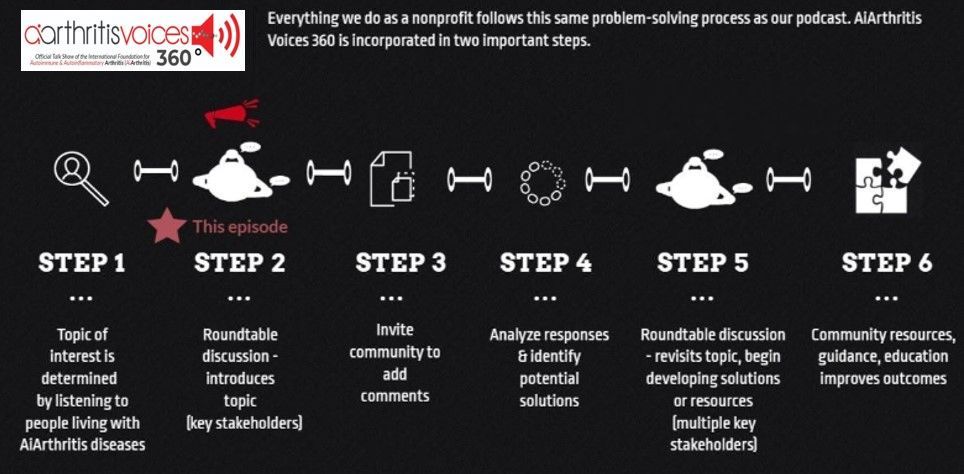
All our main 1st Sunday of the month episodes are either an initial "put the topic on the table" episode (Step 2 in our organization's 6-step problem solving process) or a "revisit to the table" episode (Step 6 in our organization's 6-step process), where we build on a past show because we have moved forward in developing help, tools, or projects around the issue (Step 5 in our organization's 6-step process).
After each show airs we spin off the conversation into many discussions over various formats, which we now call #360its (new in 2022)!
-
Additional Resources & Information
Want to Share Your Rant with Us? Click HERE to Submit Your Rant!
Want to read more chronic illness-type rants? Or do you want to explore other support communities surrounding our illnesses? Check out these additional sub-Reddits:
- Reddit Chronic Illness Community - How is Everyone? Come Rant!
- Reddit Chronic Illness Community - Bad Day? Come Vent with Me!
- Reddit Rheumatoid Community - Can We All Use This Thread to Vent?
- Reddit Lupus Community - I'm So Annoyed at Healthy People!
- Reddit Lupus Community - Rant!

And now, let's 360it!
The main Sunday episode is where we "put the topic on the table," but it's not where the conversation ends! Now we spin off the conversation into different discussion segments. Below you will find several 360its. Some are videos from the main episode, while others are audiograms (soundbites).
Soon we will be launching additional 360its, which will build on these conversations. We'll hear from patients in the United States, Canada, and Australia who are here to help you through the transition to biosimilars. We are also planning a WATCH PARTY, where we will play back segments of webinars that aim to teach you more about biosimilars - and you'll have your fellow patients at AiArthritis to talk through it all with you! Stay tuned.
New Paragraph
360its & SHORT VIDEO CLIPS FROM THE MAIN EPISODE
My Symptoms are Invisible & People Do Not Understand!
Are you tired of feeling frustrated and unheard when it comes to your doctors, your disease, and all the challenges that come with it? Wish you had a platform to let it all out and find understanding?
Your Host: Who is at the Table this Episode?
Leila Lagandaon
Leila
is the Health Education and Engagement Manager at the International Foundation for AiArthritis. She is a person living with Lupus Nephritis and Sjögren’s Disease. She is passionate about inclusion and diversity in health education and meeting individuals where they are at in order to learn in a way that resonates with them. Leila is on social media as @LupusLifestyle.Lei sharing bits and pieces about her life with lupus and connecting with others. Connect with her on Instagram or TikTok.
Charis Hill
Patrice was diagnosed with Polymyalgia Rheumatica. Patrice has been in remission off and on during these last 11 years. Patrice also has had several comorbidities: severe hearing loss which resulted in her now wearing hearing aids, a Baker's Cyst, a vein ablation, plantar fasciitis, pseudo gout, and she also has osteopenia. Patrice has been a volunteer with AiArthritis for over 2 years and has been co-host and a host for the podcast several times. Patrice went to EULAR virtually with AiArthritis in 2020 and 2021 and attended the virtual ACR conference in 2021 with AiArthritis.
Patrice Johnson
Patrice was diagnosed with Polymyalgia Rheumatica. Patrice has been in remission off and on during these last 11 years. Patrice also has had several comorbidities: severe hearing loss which resulted in her now wearing hearing aids, a Baker's Cyst, a vein ablation, plantar fasciitis, pseudo gout, and she also has osteopenia. Patrice has been a volunteer with AiArthritis for over 2 years and has been co-host and a host for the podcast several times. Patrice went to EULAR virtually with AiArthritis in 2020 and 2021 and attended the virtual ACR conference in 2021 with AiArthritis.
Pull up your seat at the table
Now it's YOUR TURN to join the conversation!
What do you think about this episode?
We want to know what you think! By continuing the conversation with your opinions and perspectives - we all get a better understanding of the problems facing our community. Better yet, through these conversations we can start working and developing solutions.
We mean it when say 360. Not only do we want your input anytime and anywhere, but we also are eager to see where the conversation will take us. So please, "pull up a seat at the table" and let's start talking!
Email us at podcast@aiarthritis.org, message us on social media (find us by searching for @IFAiArthritis)
Relevant Episodes & Projects
-
Episode # 68: Rant Ahead! Together We Can Make Change
Learn More About this EpisodeThis week join Tiffany Westrich-Robertson as she takes this episode on solo! She goes on a rant about the ability -- or lack of ability -- for patient organizations to participate in conferences.
-
Need to Share Your Story? Submit Your Rant Here!
Learn More About this ProjectCome as you are and leave it all out on the "table!" Share your experiences, perspectives, and opinion - we truly want to hear them all! We value your input on the issues in our community, because by listening to what you are saying, and what topics you are ranting about, we can better understand the issues and challenges facing our community.
-
Episode # 85: Disease Elevator Pitches
Learn More About this EpisodeIn this episode, our co-hosts Leila, Charis, and Patrice put a new topic on the table: how to explain your AiArthritis disease in a 30-60 second elevator pitch. Out co-hosts will provide you with practical tips on how to tailor your elevator pitch to different audiences to help you confidently communicate your AiArthritis and advocate for yourself.
-
RheumyRounds: PART ONE The Good, The Bad, and The Ugly - Improving Office Visit Communication
Learn More About this EpisodeDuring this episode, Kerry Wong and Tiffany Westrich-Robertson are joined by Dr. Lisa Zickuhr, where, together, they share stories of Good, Bad, and Ugly in office communication experiences - with the goal to collect more stories, from YOU!
Love the show? Help us make sure we stay on the air by making a donation.
Your contribution helps us continue the work we do every day to improve the lives of millions worldwide.
Sign up for our newsletters
International Foundation for AiArthritis
6605 Nottingham Ave.
St. Louis, MO 63109-2661
Toll Free: 1-877-609-4226
Text: 1-314-282-7214
Copyright 2024. All rights reserved. Information on this site is intended for informational purposes only Our foundation does not engage in the practice of medicine. Please consult a physician to obtain personal healthcare and treatment options. 501(c) 3 Nonprofit Tax ID: 27-1214308.





